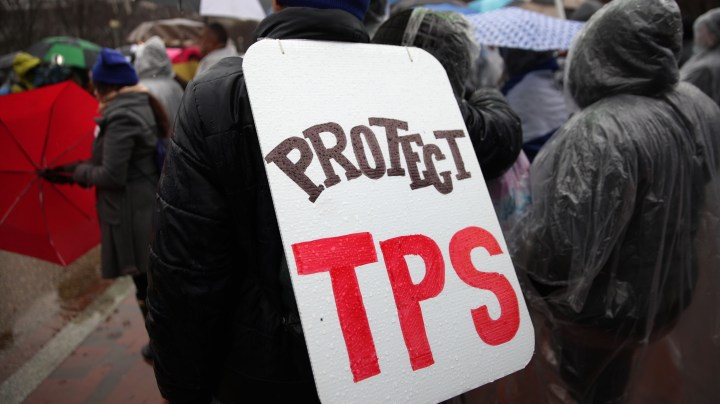More Than 200K Salvadoran TPS Holders Have Another Year to Live in the US

Immigration activists participate in a rally in front of the White House February 12, 2019 in Washington, DC. Photo by Alex Wong/Getty Images
In the year of our lord 2019, it feels like any dosage of good news is a win, no es asi?
Currently, that semi-good news comes in the form of extended temporary protected status (TPS) for more than 200,000 Salvadorans who reside in the United States. Specifically, the extension is for another year. But, as usual, it comes with an asterisk attached.
José Palma, national coordinator for the TPS National Alliance, told Public Radio International that the fight is far from over. The solution in and of itself is more of a Band-Aid than a cure.
“This temporary protection is great, but we also understand this year will go by quickly,” he told reporters in Washington, D.C., following the announcement.

Salvadoran President Nayib Bukele, who has praised Donald Trump in the past and has served as a divisive topic among Salvadorans in the U.S., took to Twitter to bootlick and share the news with followers.
“They said it was impossible. That the Salvadoran government couldn’t do anything. But we knew our allies wouldn’t leave us on our own,” he said.
Decían que era imposible. Que el Gobierno Salvadoreño no podía hacer nada. Pero nosotros sabíamos que nuestros aliados no nos dejarían solos.
No quisimos compartirlo antes porque podíamos entorpecer las conversaciones.
Pero después de todo, gracias a Dios, el TPS se logró. pic.twitter.com/xKF77r13cS
— Nayib Bukele (@nayibbukele) October 28, 2019

Salvadorans are reportedly the main beneficiaries of TPS, followed by Hondurans and Haitians. The program was founded in 1990 and granted to them specifically in 2001 as a response to the devastating earthquakes that killed more than 1,000 people and left many homeless. The program provides things like deportation immunity and a work permit. In 2018, the Trump administration attempted to remove that protection from people in Nicaragua, El Salvador, Haiti, and Sudan. That was blocked by a federal judge. Countries such as Syria and Yemen have received extensions as well.
“We feel that anything that comes during this period of time is good news. But at the end of the day,” Palma said, “unless it’s a permanent residency, we should continue with the same fight, and with the same effort and with the same energy.”